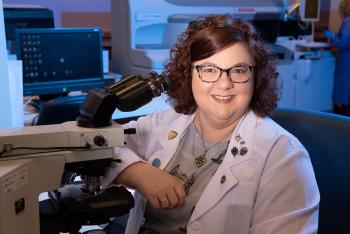Explore the unique challenges and essential screening strategies for individuals with dense breast...
Read More
Colonoscopies, an endoscopic procedure in which the colon, rectum and the last part of the intestines, are screened for potentially cancerous growths, are more important than you might think. People with an average risk of colorectal cancer should have their first screening around age 45, and every 10 years after that unless otherwise recommended by your doctor. If you have a family history of colon cancer or other risk factors, your doctor may recommend that you have your first colonoscopy sooner.

Unlike most cancer screenings that perform a solely diagnostic function, colonoscopies can also be therapeutic. This means when a growth—also known as a polyp—is located in the search area, it can be removed during the exam itself, eliminating the need for inconvenient follow-up appointments and stressful wait times.
Polyps are benign growths that are prone to cancerous mutations if they grow within the intestines. Most patients aren’t even aware they have polyps, as they don’t usually cause any symptoms.
Colonoscopies may not be the most comfortable cancer screening, but they are easier than ever thanks to advancements in areas like scheduling and preparation. However, if you’ve never had the exam, it can seem daunting.
Here’s what you need to know.
You can also start eating again immediately after your exam. You may notice slight blood in your stool if you had polyps or biopsies removed. If bleeding lasts more than a day or becomes severe, you should tell your doctor.
To schedule an appointment for a colonoscopy, call 1-800-INSPIRA.

Explore the unique challenges and essential screening strategies for individuals with dense breast...
Read More
Join us as we look back on a heartwarming day of love, laughter and resilience. Our annual Cancer...
Read More
Inspira Health is featured in a national colorectal cancer care report issued by Fight Colorectal...
Read More